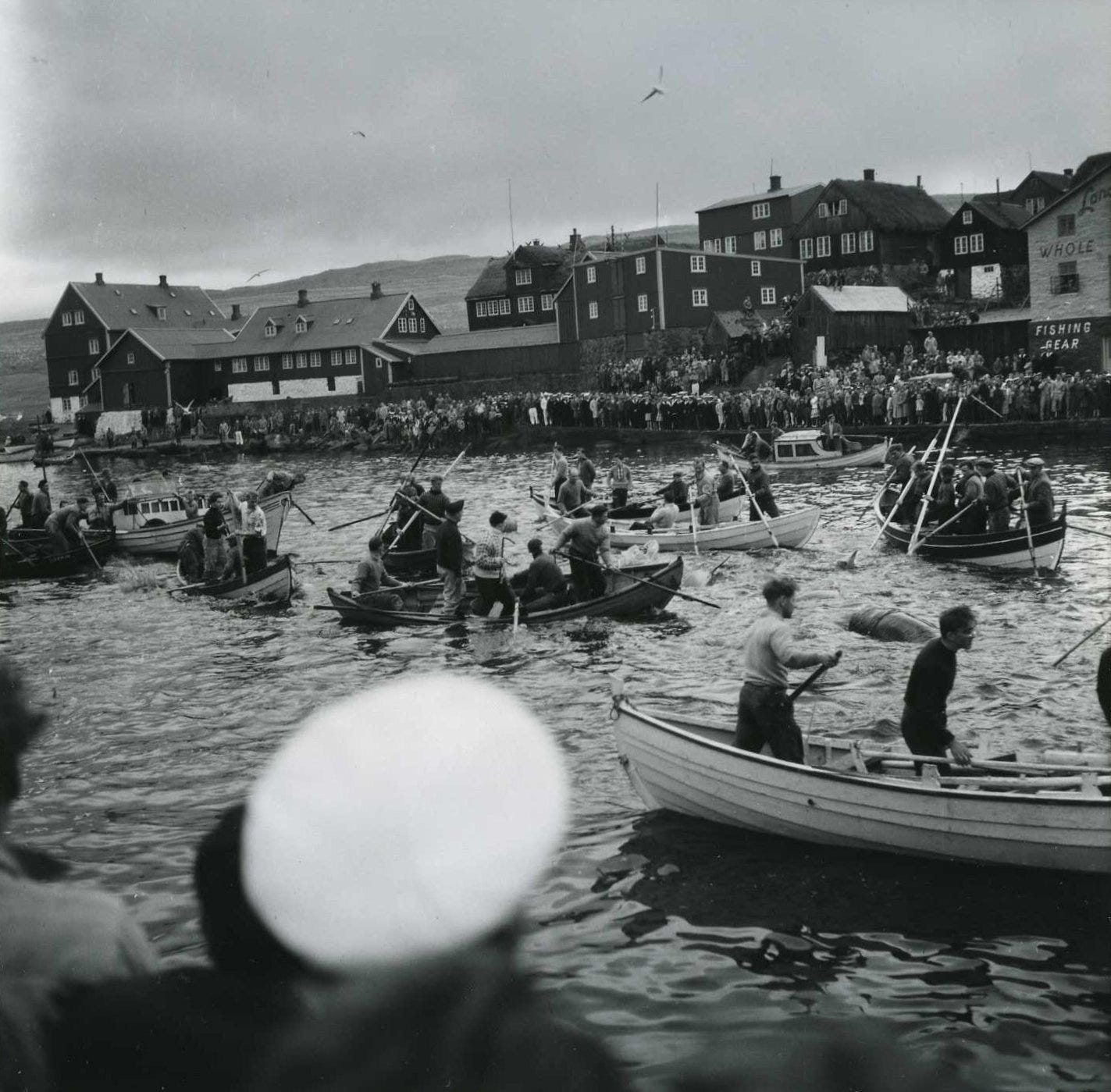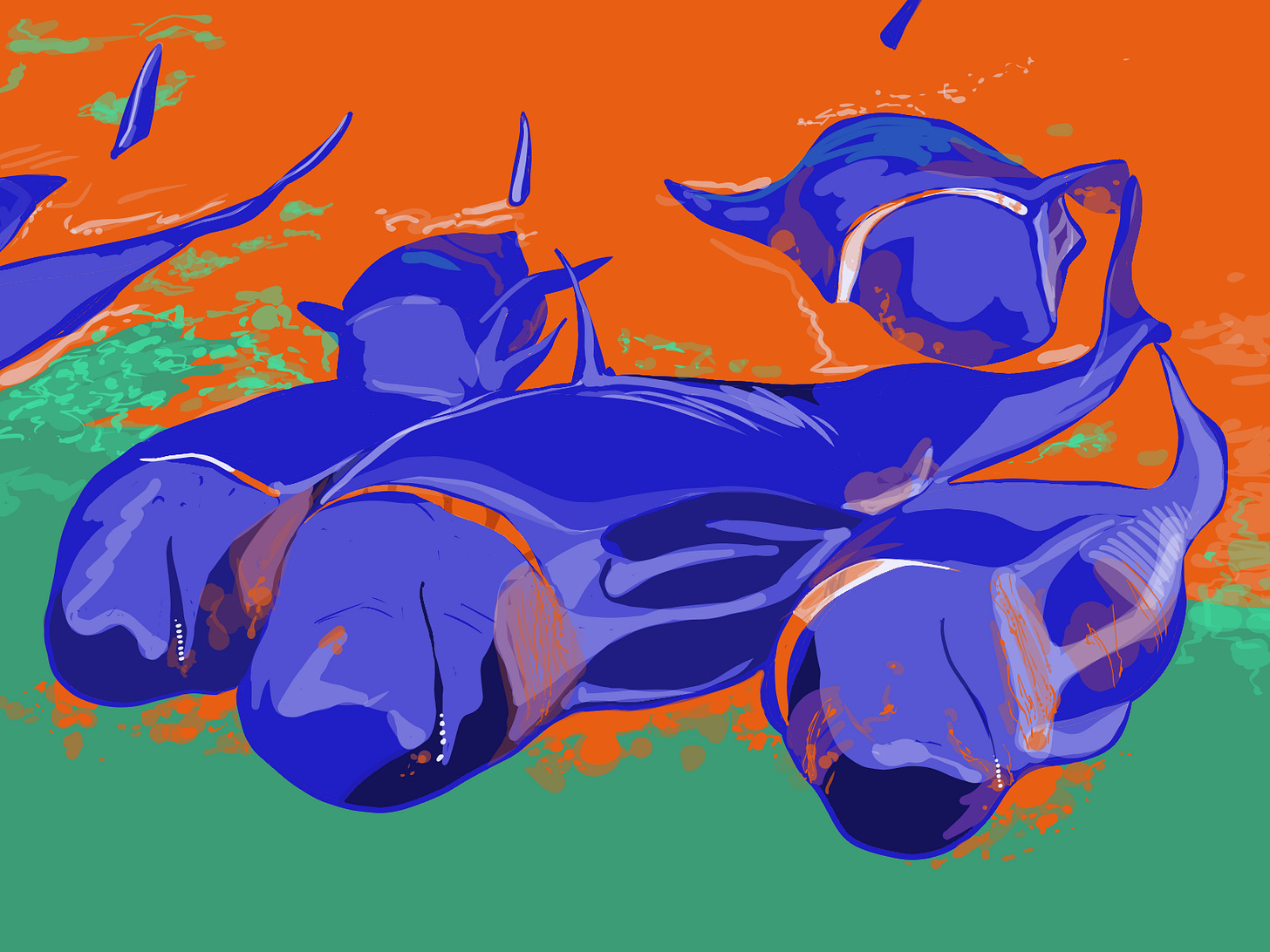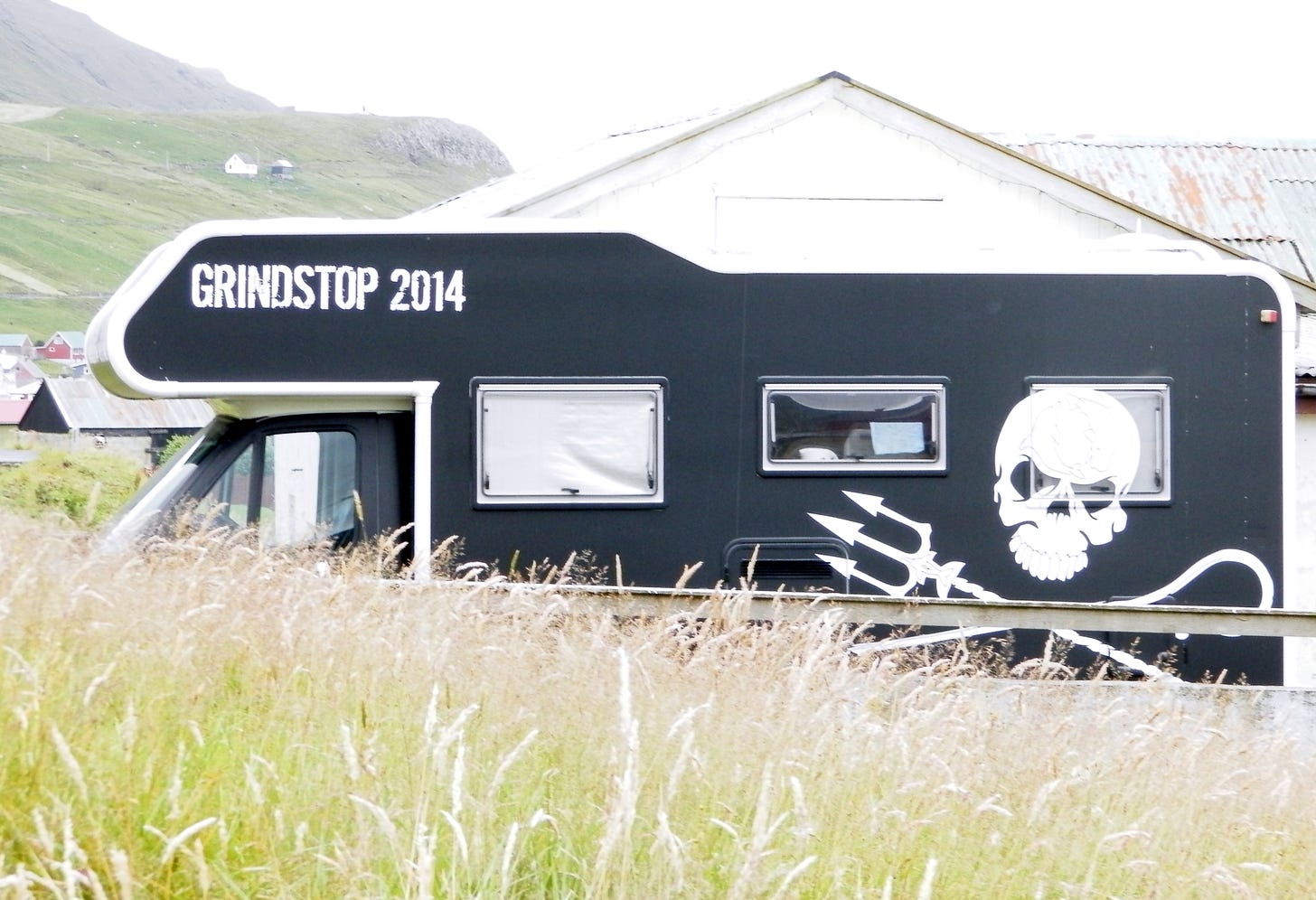This archipelago is slaughtering dolphins and whales. Can international pressure halt it?
Stop the Grind is a global, multichannel coalition seeking to stop an annual hunt in the Faroe Islands.
Every year between June and September, in line with a thousand-year-old tradition, hunters kill white-sided dolphins and pilot whales in the shallow water at Skálabotnur beach in the Faroe Islands.
The practice harks back to the Viking age, and is known as Grindadràp or Grind. Its advocates cite its importance as a cultural event, and the use of whale meat and blubber for food.
While the annual catch is on average 600 pilot whales for the Faroe Islands, located in the North Atlantic between Scotland and Iceland, last September hunters slaughtered 1,428 dolphins and dozens of whales in a bloodbath in the annual mass slaughter.
Although the EU banned the killing of whales and dolphins by member states, it does not apply to the Faroe Islands as a self-governing country in the Kingdom of Denmark. Since the Faroe Islands is not a member of the International Whaling Commission (IWC), the Faroese government regulates whale and dolphin hunts itself.
Internationally the Faroe Islands cooperates through the North Atlantic Marine Mammal Commission (NAMMCO) on the conservation of whales and the management of whaling. It considers the population of pilot whales as meeting all the criteria needed for favourable conservation status.
‘In 2012, a partial assessment concluded that sustaining an annual catch of 678 animals (the average annual catch for the 1997–2011 period) required a target population of 50,000–80,000 pilot whales’, it says. ‘The population sustaining the catch is estimated to be over 100,000 whales (NAMMCO 2013).’
Stop the Grind
However, after the last September slaughter, the government of Faroe Islands decided to review and evaluate the way hunts of Atlantic white-sided dolphins are carried out. This is in part due to global uproar from politicians, journalists, activists, and authorities.
Pressure has been steadily building over a number of years. Pamela Anderson, actress and animal rights activist, visited the Faroe Islands in 2014 and wrote a letter to Danish Prime Minister Lars Løkke Rasmussen, asking that Denmark end its support of the Grindadráp.
PETA has created an online petition against what it calls ‘a Stone Age practice in a modern world and cruelty to animals in the name of cultural tradition.’ The petition is addressed to Bárður á Steig Nielsen, Faroese prime minister, and Gudrid Højgaard, CEO of Visit in the Faroe Islands.
Alongside PETA, Born Free has designed an online petition on suspending the free-trade agreement with the Faroe Islands until the slaughter ends for good. Born Free’s Policy Advisor Dominic Dyer called to sanction a trade agreement with the Faroe Islands to end the shameful slaughter of whales and dolphin.
Perhaps most notable is the work of a marine conservation organisation called Sea Shepherd. The group’s focus is direct action, and in 2021 it set up global, multi-stakeholder coalition Stop the Grind.
Sea Shepherd criticised the September 2021 hunt for breaking the laws designed to regulate it. Allegedly the foreman for the district never authorised it, many participants lacked a license, and numerous dolphins were run over by motorboats – thus dying a slow and painful death.
This Grind was ‘so brutal and badly mishandled’ as to attract criticism in the ‘Faroese media and even by many outspoken pro-whalers and politicians in the Faroe Islands.’
Stop the Grind, run in collaboration with impact consultancy Shared Planet, is a space where all parties opposed to the hunt can centralise their efforts. It is supporting Dyer’s call for sanctions, as well as asking retailers to suspend sales of Faroese fish and holidaymakers to steer clear of the Islands.
The organisation is set launch a variety of activities over the coming months and years. Its success looks set to be dependent on collaboration with the aforementioned pro-whalers and politicians, as well as that within its own ranks.
Najmeh Tima is a journalist based in Isfahan, Iran – primarily covering digital privacy.





